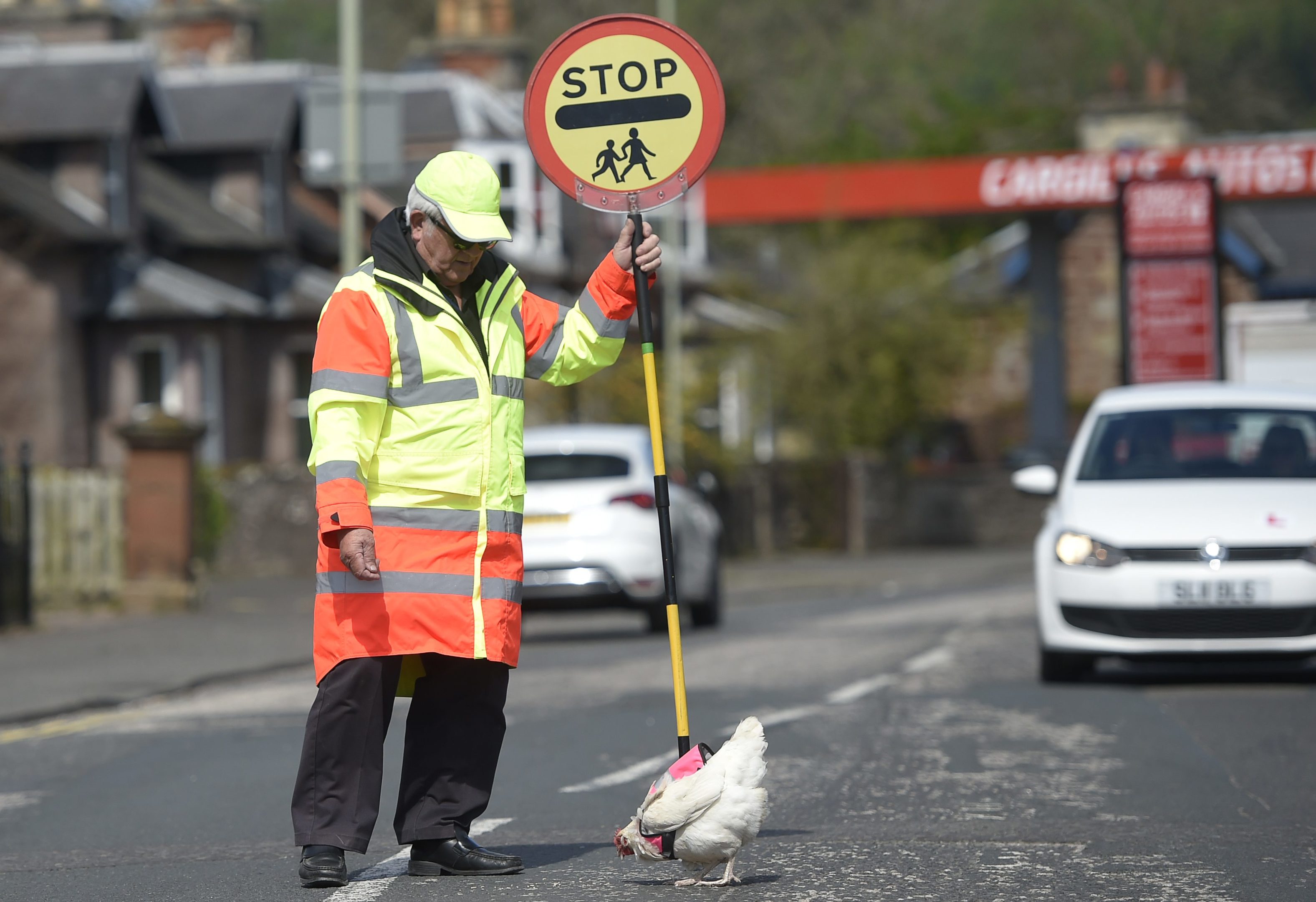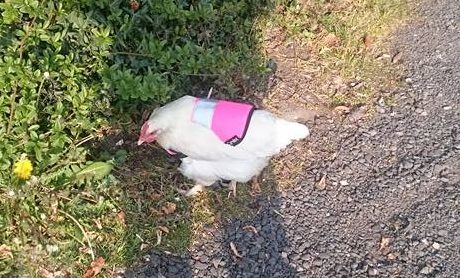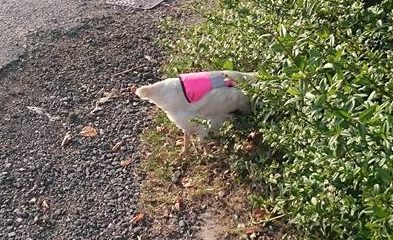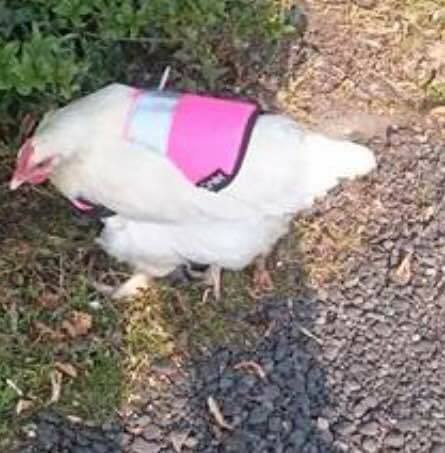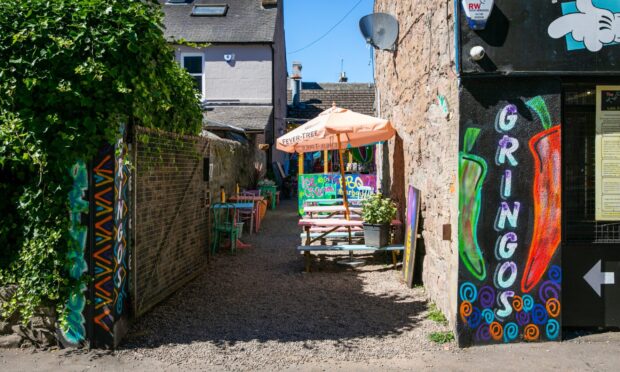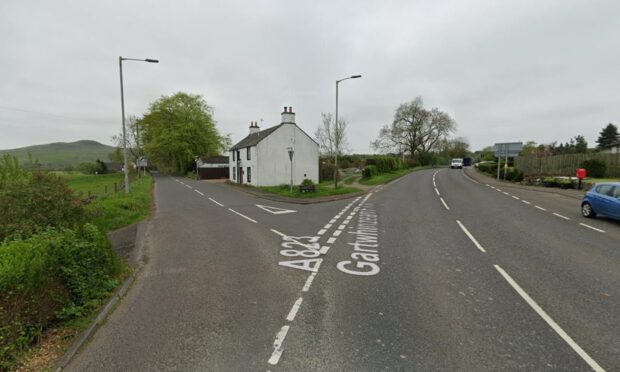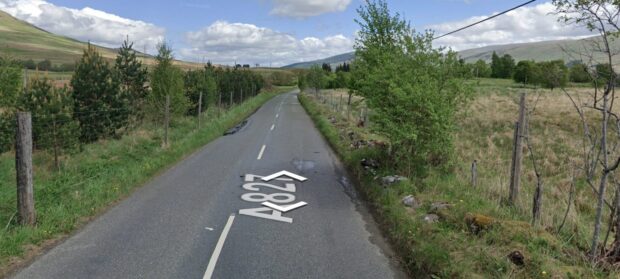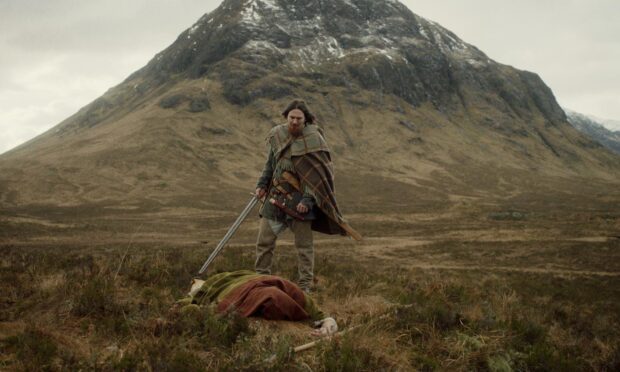Motorists passing through a Perthshire village are being stopped in their tracks by an unusual sight — a hen decked out in a hi-vis vest.
While they might ponder why the hen crossed the road, they can at least be reassured that it did it safely.
Snowdrop is one of half a dozen hens which were bought for the residents of the Moncreiffe Nursing Home in Bridge of Earn last year, but is by far the most adventurous.
She has taken to wandering around the village and to keep her safe, care home manager Norma MacLeod decided to buy Snowdrop a hi-vis vest.
She has become a regular at the Co-op, visits nearby holiday cottages and is a favourite with locals who leave her a snack.
“The other hens are happy to stay around the care home grounds but Snowdrop goes out for a wander,” said Ms MacLeod.
“She was crossing the road so the hi-vis vest gives a bit of safety on the road.
“Everybody knows her.”
Since the hens were acquired a year ago they have become very popular with the home’s 33 residents.
“The residents named them and like to watch their antics, it gives them something to chat about,” said Ms MacLeod.
“It is quite therapeutic, quite a few of them kept chickens when they were younger.
“They also enjoy fresh laid eggs for breakfast!”
Keeping chickens in care homes and sheltered accommodation was pioneered down south in an effort to fight loneliness and depression among the elderly.
Ms MacLeod pointed to a recent study on improving wellbeing in care settings conducted at Northumbria University which reported that those with minimal human contact are 64% more likely to develop clinical dementia.
Introducing “feathery friends” and the discussions they lead to is seen as an effective way of combating this problem.
